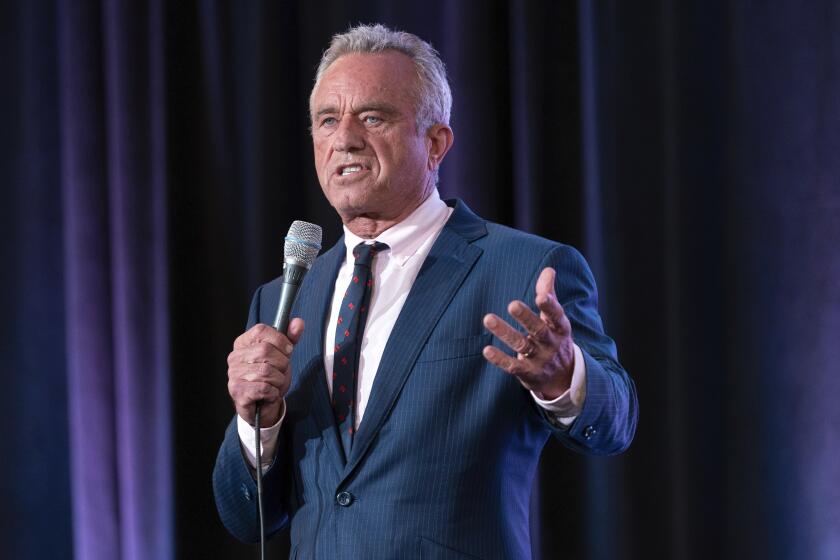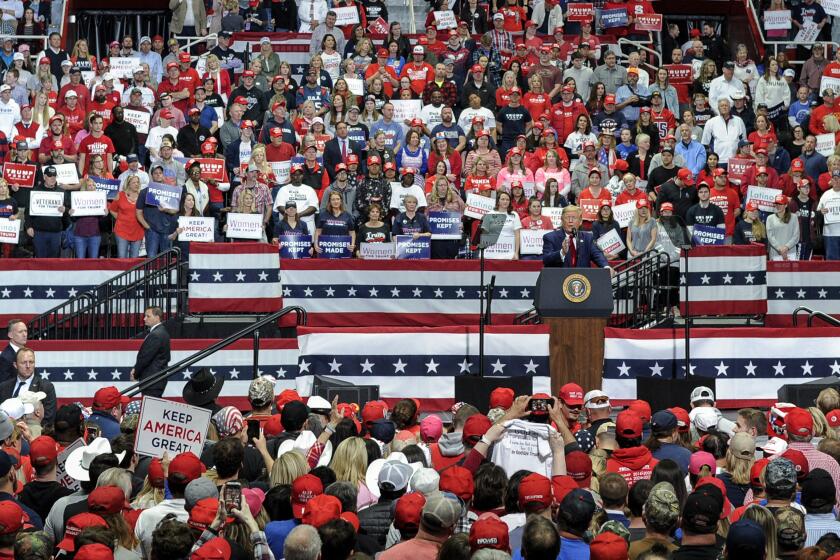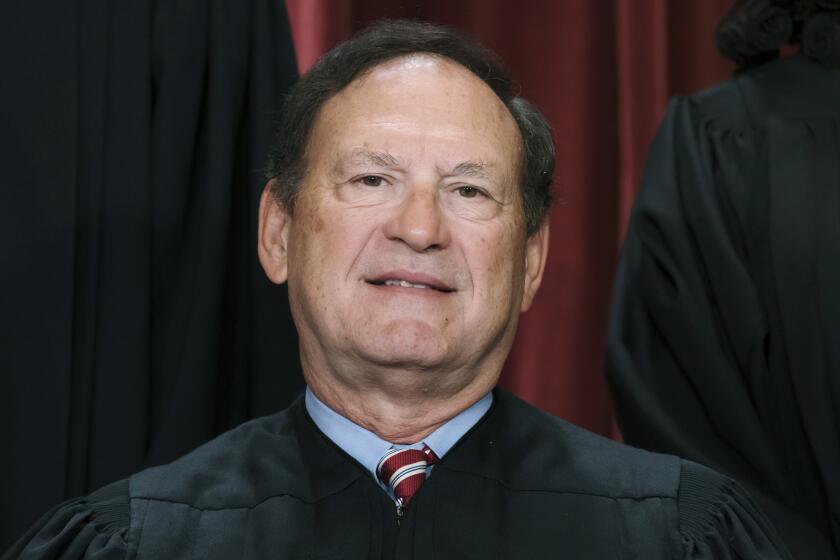Senate Panel OKs Budget Package; House Debates Similar Plan
The federal budget battle erupted on both sides of Capitol Hill Wednesday as Democrats pushed hard for higher taxes and cuts in defense spending in a direct challenge to President Reagan.
A bitterly divided Senate Budget Committee approved a spending plan that calls for $18.5 billion in added revenues for fiscal 1988 and a $6.9-billion cut in defense outlays below current spending levels.
The House, meanwhile, began a highly partisan floor debate on a similar spending package. “In contrast to the President, we did make the hard choices,” said Rep. William H. Gray III (D-Pa.), who developed the Democratic plan as chairman of the House Budget Committee.
‘Tax and Spend’
However, Rep. Delbert L. Latta of Ohio, the committee’s ranking Republican, denounced the proposal as “a typical Democrats’ budget--tax and spend, tax and spend.”
The coming months of budget controversy and political maneuvering will focus on tax increases: Reagan has proclaimed his determination to reject any tax hikes, and Democrats have insisted that tax increases are inevitable.
Members of both parties generally agree that the 1986 tax reform act is untouchable and that rates for individuals will not be changed. But many Democratic leaders believe that the President can be persuaded to accept tax increases in other areas, such as on gasoline, beer, wine and cigarettes.
A boost in the gasoline tax, which can raise $1 billion for every penny increase, has been suggested by Rep. Dan Rostenkowski (D-Ill.), chairman of the House Ways and Means Committee.
But Rostenkowski and his Democratic Senate counterpart, Finance Committee Chairman Lloyd Bentsen of Texas, will move cautiously on writing any tax legislation until they are convinced that it will not give the Republicans political advantage.
The House debate Wednesday indicated that the Republicans will launch a strong attack on the tax issue.
“There they go again, with the same old tax-and-spend policies the American voters have rejected for the past six years,” Rep. Harold Rogers (R-Ky.) said in denouncing the Democratic plan, which calls for $18 billion in new revenues and $17.5 billion in spending cuts divided between defense and domestic programs.
The President’s budget, which appears to have no chance of winning approval from the Democratic majorities in the House and Senate, provides for $22.4 billion in revenue increases, but much of the money would come from the sale of government assets. About $6 billion would be raised by increases in government fees and Reagan is seeking a $7-billion increase in military spending above current levels.
At the Senate Budget Committee Wednesday, GOP members bristled against the Democratic defense cuts but offered no alternative plans. “For the other side, budgeting is a spectator sport,” Sen. Frank R. Lautenberg (D-N.J.) said.
The “reason some of us have become spectators is because, frankly, we cannot get a . . . coalition in this committee,” said Sen. Warren B. Rudman (R-N.H.). The members advocate different spending levels for defense, agriculture or social service programs and cannot agree on the top priorities, Rudman said.
The panel formally approved one budget but sent three others to the Senate floor without recommendation. The proposal that was endorsed, by Chairman Lawton Chiles (D-Fla.), got a 13-11 vote and calls for $18.5 billion in added revenues and taxes in fiscal 1988, which begins Oct. 1. The proposal, approved along party lines, includes $13.7 billion in domestic spending cuts.
The plan, which failed by one vote last week in the committee, received a majority Wednesday with support from Sen. Ernest F. Hollings of South Carolina, the one Democrat who had refused to vote for it earlier.
In return, the committee agreed Wednesday to send to the floor Hollings’ budget plan, which would impose a national sales tax on all goods except food and housing, as well as cut defense and domestic programs.
The panel also agreed to send to the full Senate President Reagan’s budget and another plan that would cut spending automatically and drastically from all federal programs.
The split in the committee “is pretty reflective of what the Senate is,” Chiles said. The committee’s ranking GOP member, Sen. Pete V. Domenici of New Mexico, agreed, saying that he is “not sure that a consensus is possible” on the Senate floor.
More to Read
Get the L.A. Times Politics newsletter
Deeply reported insights into legislation, politics and policy from Sacramento, Washington and beyond. In your inbox three times per week.
You may occasionally receive promotional content from the Los Angeles Times.






